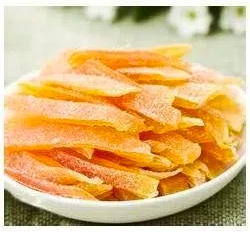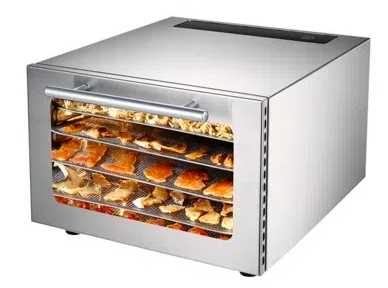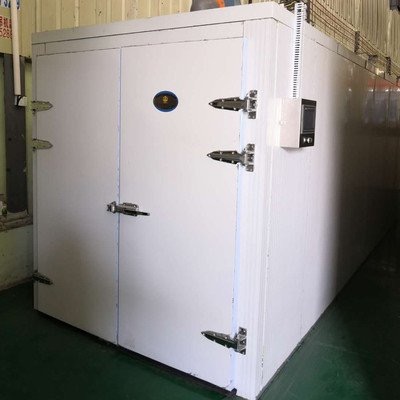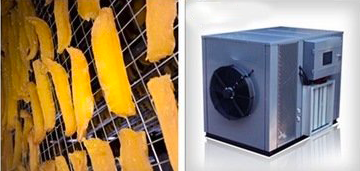
Content Menu
● Understanding Heat Pump Dryers
● The Energy Efficiency of Heat Pump Dryers
>> Lower Operating Temperatures
>> Energy Recovery
>> Humidity Control
>> Versatility
● Benefits of Using Heat Pump Dryers for Food Processing
>> Improved Product Quality
>> Reduced Environmental Impact
>> Cost Savings
>> Automation and Control
● Choosing the Right Heat Pump Dryer
>> Capacity
>> Energy Efficiency Ratings
>> Features and Technology
>> Brand Reputation
>> Support and Service
● Conclusion
● Frequently Asked Questions
>> 1. What is a heat pump dryer?
>> 2. How does a heat pump dryer save energy?
>> 3. Can heat pump dryers be used for all types of food?
>> 4. What are the advantages of using a heat pump dryer?
>> 5. How do I choose the right heat pump dryer for my business?
In the world of food processing, drying is a crucial step that significantly impacts the quality, shelf life, and flavor of food products. As a leading manufacturer of food drying machines in China, we understand the importance of energy efficiency in our products. This article will explore how heat pump dryers, particularly the best-rated models, compare in terms of energy efficiency, and why they are an excellent choice for food drying applications.

Understanding Heat Pump Dryers
Heat pump dryers are innovative machines that utilize a refrigeration cycle to remove moisture from food products. Unlike traditional dryers that rely on direct heat, heat pump dryers recycle the heat generated during the drying process, making them more energy-efficient. This technology not only reduces energy consumption but also helps maintain the nutritional value and flavor of the food.
The Energy Efficiency of Heat Pump Dryers
Energy efficiency is a critical factor for businesses looking to reduce operational costs and minimize their environmental impact. Heat pump dryers are designed to operate at lower temperatures, which is particularly beneficial for drying sensitive food products. The ability to control the drying environment allows for a more uniform drying process, reducing the risk of over-drying or damaging the food.
Lower Operating Temperatures
Heat pump dryers typically operate at temperatures between 30°C to 70°C (86°F to 158°F). This lower temperature range is ideal for drying fruits, vegetables, and herbs without compromising their quality. In contrast, traditional dryers often operate at much higher temperatures, which can lead to nutrient loss and changes in flavor. The gentle drying process of heat pump dryers helps preserve the natural colors and flavors of the food, making them a preferred choice for high-quality food products.
Energy Recovery
One of the standout features of heat pump dryers is their ability to recover and reuse energy. The heat generated during the drying process is captured and redirected back into the system, significantly reducing the overall energy consumption. This energy recovery system can lead to savings of up to 50% compared to conventional drying methods. By utilizing this technology, businesses can not only lower their energy bills but also reduce their carbon footprint, contributing to a more sustainable operation.
Humidity Control
Heat pump dryers can effectively manage humidity levels within the drying chamber. By controlling the humidity, these dryers can optimize the drying process, ensuring that moisture is removed efficiently without excessive energy use. This feature is particularly important for products that are sensitive to moisture, such as dried fruits and vegetables. Maintaining the right humidity levels also helps prevent the growth of mold and bacteria, ensuring that the final product is safe for consumption.
Versatility
Heat pump dryers are versatile and can be used for a wide range of food products, including meats, fish, and dairy. This versatility allows businesses to expand their product offerings without investing in multiple drying systems. For instance, a single heat pump dryer can be used to dry herbs, fruits, and even meat products, making it a cost-effective solution for food processors.

Benefits of Using Heat Pump Dryers for Food Processing
The advantages of heat pump dryers extend beyond energy efficiency. Here are some additional benefits that make them an attractive option for food processors:
Improved Product Quality
The gentle drying process helps preserve the color, flavor, and nutritional content of food products. This is particularly important for businesses that prioritize high-quality products. For example, dried fruits retain their vibrant colors and natural sweetness, while vegetables maintain their crisp texture and nutritional value. This quality preservation can lead to higher customer satisfaction and repeat business.
Reduced Environmental Impact
By using less energy and producing fewer emissions, heat pump dryers contribute to a more sustainable food processing operation. This is increasingly important as consumers become more environmentally conscious. Many businesses are now seeking ways to reduce their environmental footprint, and investing in energy-efficient equipment like heat pump dryers is a step in the right direction.
Cost Savings
While the initial investment in a heat pump dryer may be higher than traditional dryers, the long-term savings on energy costs can make them a more economical choice. Additionally, the improved product quality can lead to higher sales and customer satisfaction. Businesses can also benefit from government incentives for using energy-efficient equipment, further offsetting the initial costs.
Automation and Control
Many modern heat pump dryers come equipped with advanced control systems that allow for precise monitoring and adjustment of drying parameters. This automation can lead to more consistent results and reduced labor costs. Operators can set specific drying times and temperatures, ensuring that each batch of food is dried to perfection. This level of control is essential for maintaining product quality and meeting customer expectations.
Choosing the Right Heat Pump Dryer
When selecting a heat pump dryer for food processing, several factors should be considered:
Capacity
Determine the volume of food that needs to be dried and choose a dryer with the appropriate capacity. Larger operations may require industrial-sized dryers, while smaller businesses can opt for compact models. It’s essential to match the dryer’s capacity with production needs to avoid bottlenecks in the drying process.
Energy Efficiency Ratings
Look for models with high energy efficiency ratings. These ratings can provide insight into the operational costs and environmental impact of the dryer. Many manufacturers provide energy consumption data, allowing businesses to make informed decisions based on their specific needs.
Features and Technology
Consider the features that are important for your specific drying needs. This may include humidity control, temperature settings, and automation capabilities. Some advanced models offer additional features such as remote monitoring and diagnostics, which can enhance operational efficiency.
Brand Reputation
Research manufacturers and their reputation in the industry. A reliable brand with positive customer reviews can provide peace of mind regarding the quality and performance of the dryer. It’s beneficial to choose a manufacturer that specializes in food processing equipment, as they will have a better understanding of industry-specific requirements.
Support and Service
Ensure that the manufacturer offers adequate support and service options. This is crucial for maintaining the dryer and addressing any issues that may arise. A good warranty and responsive customer service can save businesses time and money in the long run.
Conclusion
Heat pump dryers represent a significant advancement in food drying technology, offering unparalleled energy efficiency and product quality. As a manufacturer of food drying machines, we are committed to providing our clients with the best solutions tailored to their needs. By investing in a heat pump dryer, businesses can enhance their operations, reduce costs, and contribute to a more sustainable future.

Frequently Asked Questions
1. What is a heat pump dryer?
A heat pump dryer is a type of drying machine that uses a refrigeration cycle to remove moisture from food products while recycling heat to improve energy efficiency.
2. How does a heat pump dryer save energy?
Heat pump dryers operate at lower temperatures and recycle heat generated during the drying process, leading to significant energy savings compared to traditional dryers.
3. Can heat pump dryers be used for all types of food?
Yes, heat pump dryers are versatile and can be used for a wide range of food products, including fruits, vegetables, meats, and dairy.
4. What are the advantages of using a heat pump dryer?
Advantages include improved product quality, reduced environmental impact, cost savings on energy, and advanced automation features.
5. How do I choose the right heat pump dryer for my business?
Consider factors such as capacity, energy efficiency ratings, features, brand reputation, and support options when selecting a heat pump dryer.












